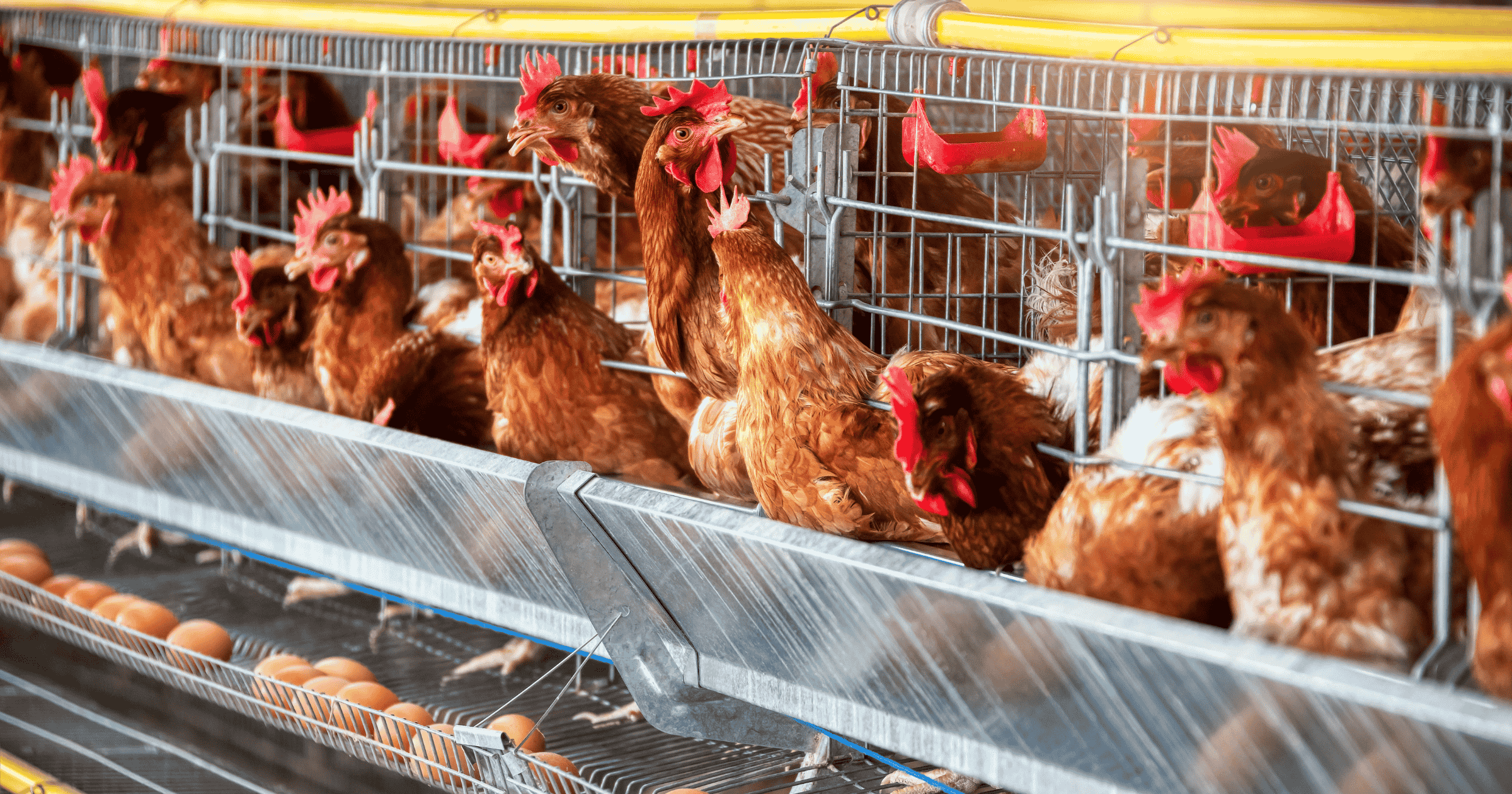
07 Apr How to Start an Egg Farm in Nigeria – A Complete Beginner’s Guide
Thinking of starting an egg farm in Nigeria?
Maybe you’ve seen how profitable poultry farming can be. Or you’re looking for a business that generates daily income, is relatively low-risk, and can scale over time.
Good news — you’re in the right place.
Whether you want to raise layers for commercial egg production, start small in your backyard, or build a full-scale poultry farm, this step-by-step guide will show you how to start an egg farm in Nigeria — the right way.
📍This guide is especially helpful if you’re in Lagos or urban areas, where demand is high and supply is often unstable.
Why Egg Farming in Nigeria Makes Sense
- High Demand: Eggs are a staple food in Nigerian homes, restaurants, schools, and bakeries.
- Daily Cash Flow: Layers produce eggs daily, which you can sell every day or week.
- Fast Return on Investment: Layers start producing in 4–6 months.
- Scalable: Start with 100 birds, grow to 1,000 or more.
- Low Waste: Eggs are easy to transport and have a market across all income levels.
Step-by-Step Guide to Starting Your Egg Farm in Nigeria
✅ Step 1: Decide on Your Scale
Ask yourself:
- Are you starting small (100–200 birds)?
- Medium-scale (500–1,000)?
- Or full commercial (5,000+)?
This will affect your:
- Budget
- Land size
- Housing
- Labour needs
- Equipment and feed costs
💡 Tip: Start small, learn the business, and scale as you build experience.
✅ Step 2: Choose the Right Location
What to look for:
- Access to clean water
- Electricity (for lighting and equipment)
- Good road for transport
- Security
- Enough space for expansion
If you’re in Lagos, outskirts like Ikorodu, Badagry, Epe, or Mowe are great for lower land costs and space.
✅ Step 3: Build or Set Up Poultry Housing
Your birds need a clean, well-ventilated pen to stay healthy and productive.
Types of housing:
- Deep Litter System: Floor covered with wood shavings, easy for beginners.
- Battery Cage System: Birds are kept in cages – cleaner eggs, less feed waste, but more expensive.
Housing must include:
- Good ventilation
- Protection from rain and predators
- Lighting (for egg production)
- Easy access for feeding and cleaning
🔧 Don’t overcrowd – space per bird matters!
✅ Step 4: Buy Day-Old Chicks (Layers)
Layer breeds in Nigeria include:
- ISA Brown
- Lohmann Brown
- Bovan Nera
- Hy-Line
Get your chicks from reputable hatcheries.
Each day-old chick costs between ₦450–₦650 as of 2025.
You’ll need:
- A brooder (warm area for chicks)
- Heat lamps or charcoal pots
- Feed, water, vitamins, and vaccines for the first 6 weeks
✅ Step 5: Feeding and Nutrition
Feeding is 70% of your cost — and it’s critical.
Feed stages:
- Starter Mash (0–6 weeks)
- Grower Mash (7–18 weeks)
- Layer Mash (from 19 weeks onwards)
Feed brands in Nigeria:
- Topfeed
- Vital Feeds
- Livestock Feeds
- Hybrid
You can also mix your own feed (if experienced), but be careful — poor nutrition = low egg yield.
✅ Step 6: Health Management
Key things you need:
- A vaccination schedule
- Regular deworming
- Clean water at all times
- Disinfectants and biosecurity
Get a vet technician to check your birds monthly, and watch for signs of:
- Respiratory infections
- Coccidiosis
- Egg drop syndrome
✅ Step 7: Egg Collection and Storage
Once your birds start laying (around 18–20 weeks), collect eggs:
- Twice a day (morning and afternoon)
- Store in a cool, dry place (not a fridge)
Sort by size (small, medium, large) and remove cracked eggs.
Use clean trays/crates to package for market.
✅ Step 8: Sell Your Eggs
Who to sell to:
- Neighbours
- Local markets
- Schools, restaurants, and bakeries
- Supermarkets
- Egg distributors in Lagos
- Online (Instagram, WhatsApp, Jiji, your own website)
Start small, build trust, and expand through word of mouth.
What Does It Cost to Start an Egg Farm in Nigeria?
Here’s an estimate for a small-scale farm with 500 birds:
| Item | Estimated Cost (₦) |
|---|---|
| Day-old chicks | 275,000 (₦550 x 500) |
| Housing & equipment | 350,000 |
| Feed for 6 months | 1,000,000+ |
| Vaccines & meds | 100,000 |
| Labour & utilities | 150,000 |
| Miscellaneous | 125,000 |
Total: ~₦2,000,000 – ₦2,500,000
How Much Can You Make from Egg Farming?
Let’s say:
- 450 birds lay 1 egg/day
- That’s 450 eggs = 15 crates/day
- At ₦3,800 per crate = ₦57,000/day
- Monthly: ~₦1.7M
- Yearly: Over ₦20M (before expenses)
Even with feed and operational costs, profit margins can be 25–35%, especially if you manage the farm well.
Challenges to Expect (and How to Solve Them)
| Challenge | Solution |
|---|---|
| High feed cost | Buy in bulk, mix your own feed if skilled |
| Bird diseases | Follow strict vaccination and sanitation routines |
| Egg spoilage | Collect and sort eggs daily, store properly |
| Market saturation | Build relationships with loyal customers |
| Theft | Secure your farm and monitor staff closely |
Final Tips for Success
- Start small but plan to grow
- Learn from experienced farmers (join WhatsApp groups, attend trainings)
- Track your expenses and income
- Focus on quality, not just quantity
- Deliver on time and be reliable — people will refer you
Interested in Seeing a Working Egg Farm in Lagos?
Our farm in Lagos produces and supplies thousands of eggs weekly.
We also support new farmers with:
- Mentorship
- Layer chick sales
- Feed supply
- Farm setup consultancy
📞 Call or WhatsApp [insert number] to book a visit or ask questions
🌐 Visit [insert website] to learn more
Recent posts
- How to Make Akara and Moi Moi with Farm Eggs | Delicious Nigerian Recipes
- How to Make Perfect Omelettes with Farm Eggs | Easy, Delicious Recipe
- Easy Egg Salad Recipes with Farm Fresh Eggs | Delicious & Nutritious
- Deviled Eggs with Local Nigerian Ingredients | Easy Recipe
- Delicious Nigerian Dishes Made with Eggs | Tasty Egg Recipes
Your cart
Your cart is currently empty!








Sorry, the comment form is closed at this time.